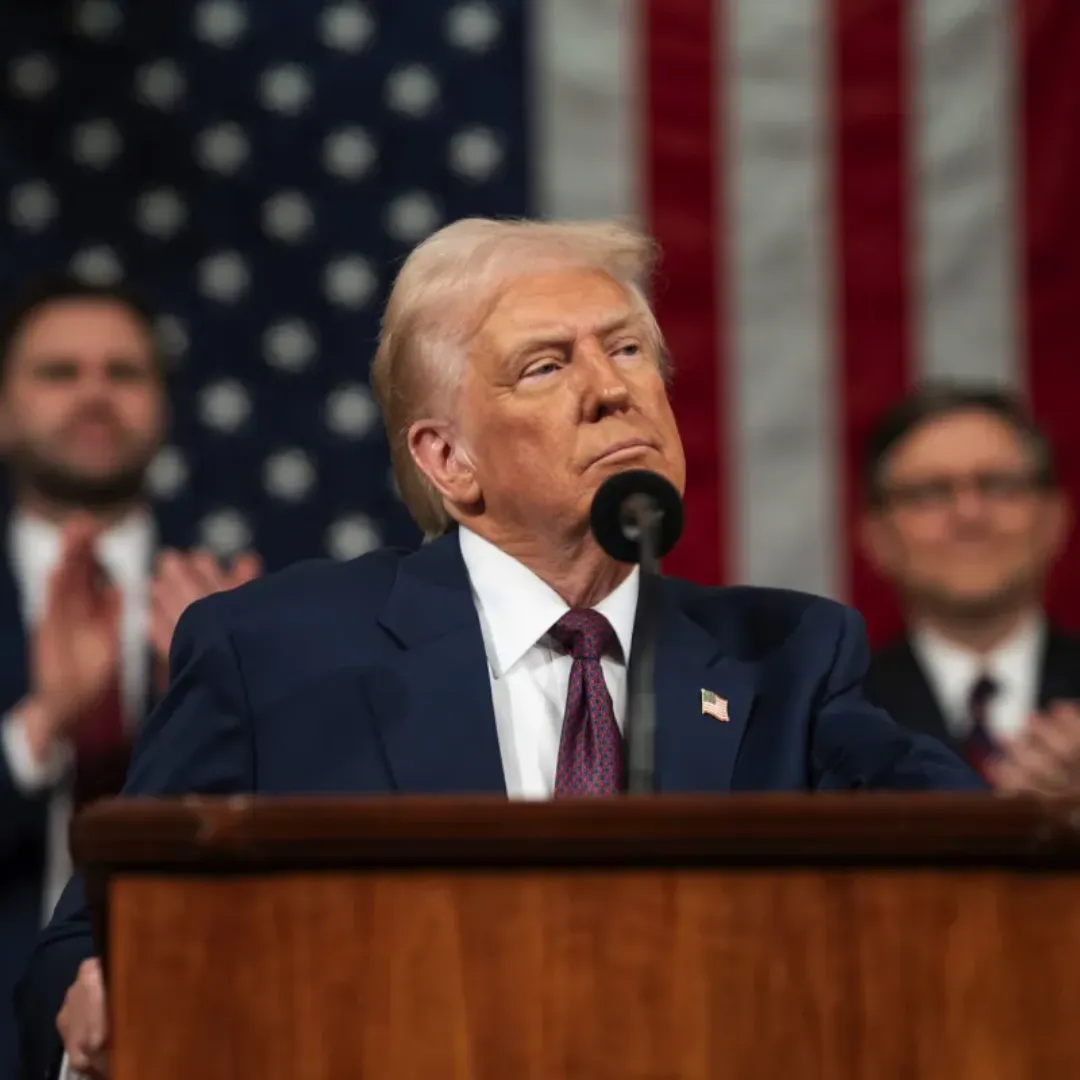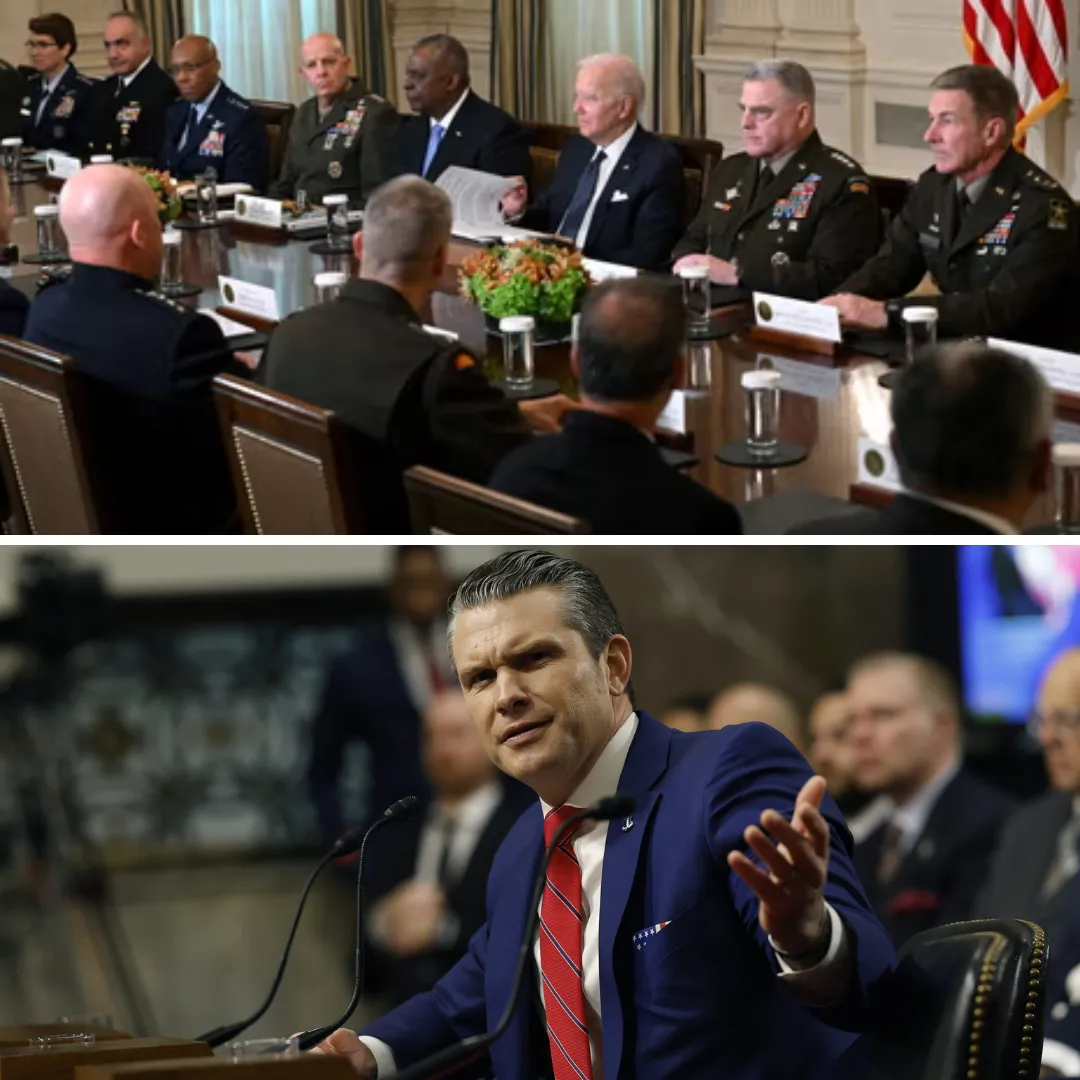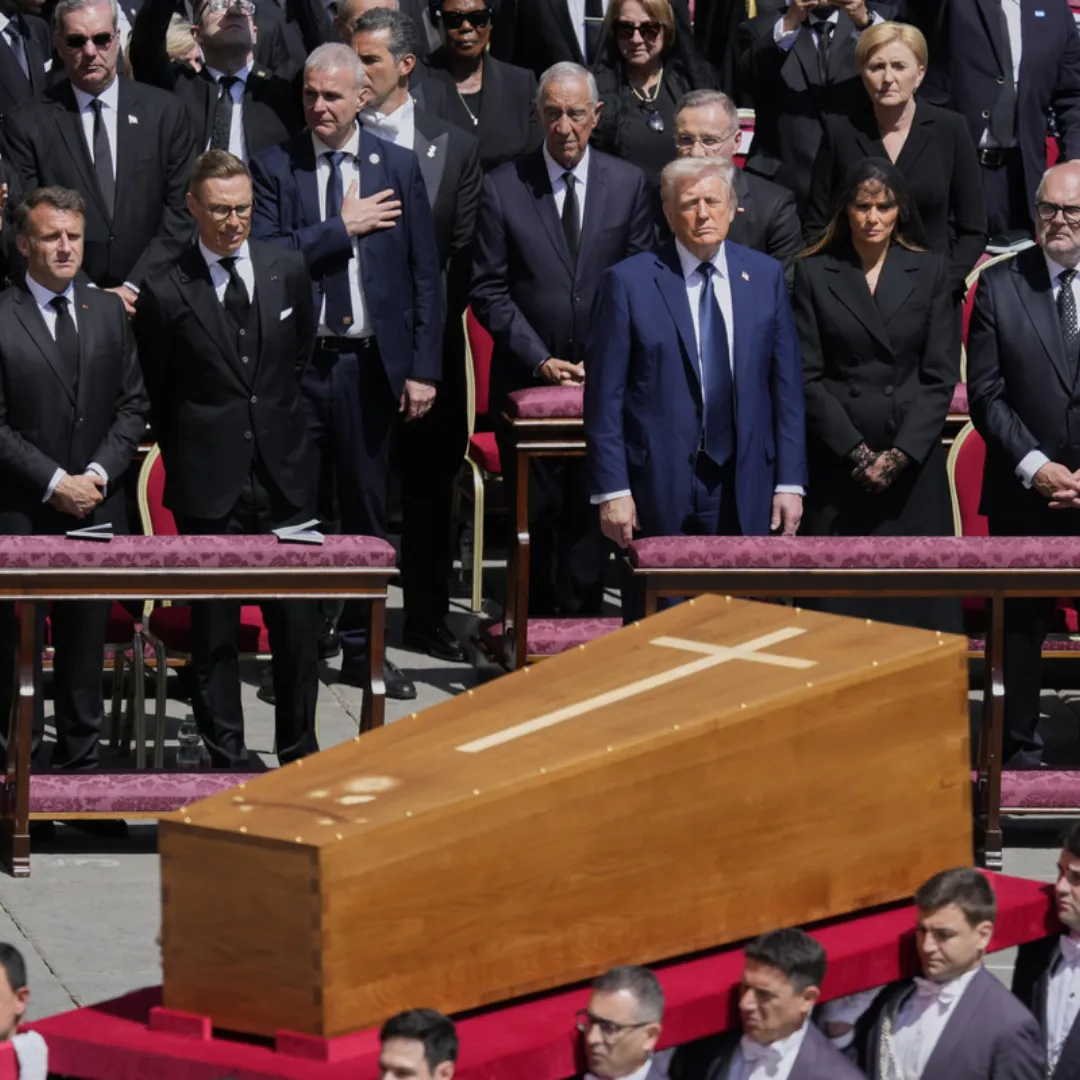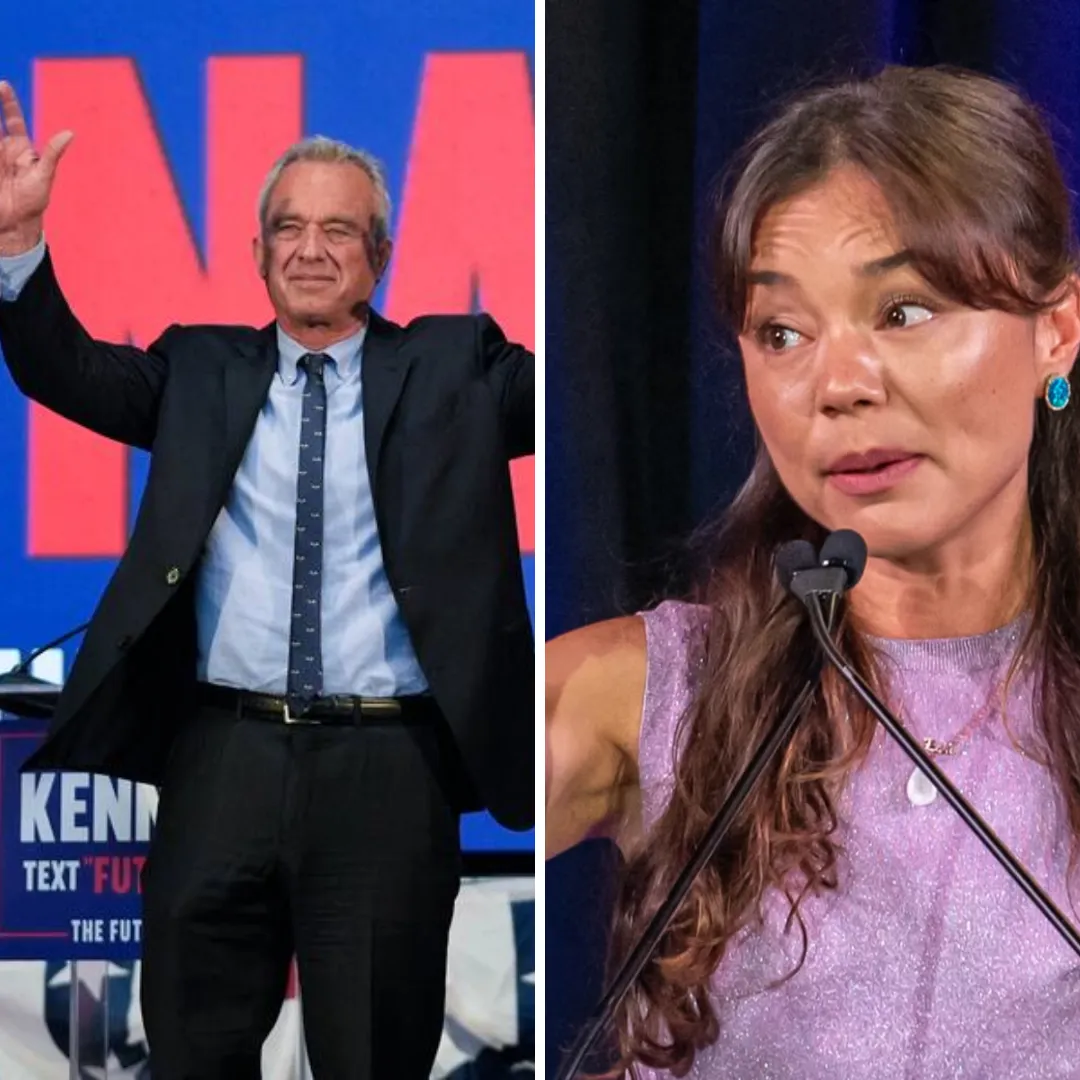
Melania Trump returned to the East Room of the White House on Thursday with grace and gravitas, unveiling a new commemorative stamp in honor of the late Barbara Bush.
The moment, intended to mark a national tribute to one of America’s most enduring first ladies, was rich in symbolism, not only for what was said but also for the visible absences and quiet tensions beneath the surface.
As the large image of the U.S. Postal Service’s new first-class stamp was revealed, bearing a 1995 portrait of Barbara Bush by artist Chas Fagan, the former first lady's unmistakable presence filled the room.
Her gentle smile, the iconic multi-strand pearl necklace, and an air of steely dignity brought the past rushing into the present. Barbara Bush, wife to President George H.W. Bush and mother to President George W. Bush, died in 2018 at the age of 92.
Now, six years after her passing, her legacy has found a new home on a piece of national postage, as enduring as the influence she wielded in American life.
Melania Trump, now in her second tour as first lady, delivered a rare and solemn speech to commemorate the occasion, describing Barbara Bush as a woman of “unwavering conviction, dignity and loyalty.”
Her words were carefully chosen, striking a tone of reverence that both celebrated Bush’s accomplishments and acknowledged the weight of her public legacy.
Melania said Bush left an undeniable mark on history through her support of literacy, women’s empowerment, and causes many Republicans once feared to touch.

She referenced Bush’s unexpected advocacy for AIDS awareness and her early and rare support of gay rights during a time when such positions were politically unpopular.
Melania applauded Bush’s courage to defend the importance of women’s roles in society across all levels, whether they be CEOs or homemakers, calling her respect for tradition and occasional break from it a hallmark of her influence.
Though the event was filled with warmth and remembrance, the absences in the room spoke just as loudly as the tributes. Notably missing were George W. Bush, the 43rd president, and other prominent members of the Bush family.
Instead, the ceremony was attended by Barbara Bush’s daughter, Doro Bush Koch, who expressed gratitude on behalf of the family and acknowledged the first lady with a moment of sincere appreciation.
She thanked Melania for hosting the event and praised the stamp’s depiction of her mother, noting the image perfectly captured her poise and strength. Bush Koch, at one point visibly emotional, recalled her parents’ enduring marriage, describing it as a partnership that shaped history and spanned decades.
With a knowing smile, she added that it was unlikely her mother ever imagined herself on a postage stamp and just as likely she would have questioned all the attention being paid to her.
That comment, meant to charm, masked a more complicated truth about the relationship between the Bushes and the Trumps. The mutual frost between the families has played out quietly but consistently in recent years.
Barbara Bush herself had been vocal in her criticism of Donald Trump during the 2016 campaign, reportedly describing him in a biography as a symbol of greed. Trump, in turn, responded to these comments with a striking level of candor, saying it was no surprise Bush felt that way given the political dismantling of her son, Jeb Bush, during the brutal Republican primary.
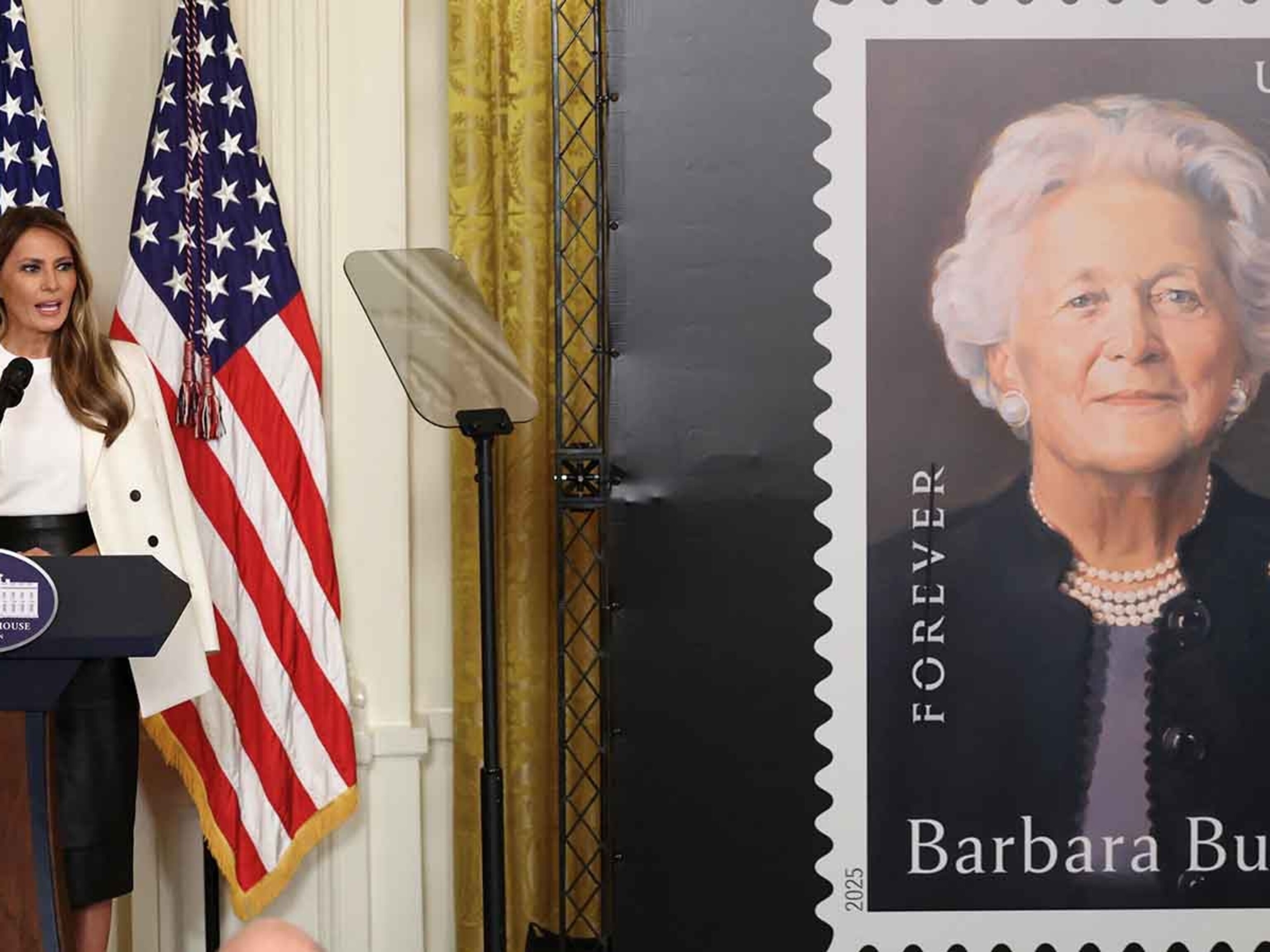
He remarked that her disapproval was justified, stating that he had effectively destroyed her sons politically, a statement that struck many as needlessly blunt even for Trump.
The former president’s feud with George W. Bush had been similarly direct. In 2018, Trump lambasted the younger Bush over the Iraq War, calling it the worst decision ever made by a U.S. president.
And in a 2017 book, George W. Bush was quoted as saying that Trump did not understand the responsibilities of the presidency. These sharp words painted a stark contrast to the quiet dignity of the stamp ceremony and explained why the full Bush family presence was notably lacking.
Though no official explanation was given for the former president’s absence, inquiries made to his office ahead of the event went unanswered. The symbolism of his silence, juxtaposed with the solemnity of the occasion, added a layer of complexity to the tribute.
While politics can often separate legacies from personal relationships, this event remained delicately balanced between public praise and private restraint. Still, Melania Trump handled the proceedings with elegance.
Her speech, calm and poised, avoided any hint of friction, focusing entirely on the legacy of Barbara Bush and her contributions to American society. The first lady closed her remarks with a call to honor Bush’s memory by embodying compassion, strength, and a pursuit of meaningful existence.
She said the commemorative stamp was more than a tribute—it was a symbol of the values that Barbara Bush lived by and fought for.
The presentation of the stamp in the East Room was met with warm applause and a moment of reflection as attendees looked at the portrait—a serene Barbara Bush seated with a quiet confidence that defined her public image.

For those old enough to remember, it recalled a time when the East Wing of the White House was shaped by a matriarch whose influence was as subtle as it was immense.
Despite the political differences that now divide the Bush and Trump legacies, there was a shared acknowledgment of the former first lady’s significance, if not a full reconciliation.
Melania’s decision to honor Barbara Bush, especially at a moment when other former first families have distanced themselves from the current administration, signaled both a recognition of history and a bid for civility.
Doro Bush Koch’s emotional tribute underscored that. Her words, deeply personal and quietly powerful, were a reminder that behind every political dynasty is a family that lived and grieved together, that bore witness to each other’s triumphs and failures with the kind of enduring love no public office can fully measure.
She spoke of her mother’s sharp wit, her deep moral compass, and her refusal to allow power to strip her of her humanity. Koch concluded by saying the family was proud and grateful for the tribute, her voice momentarily breaking, before composing herself to deliver the final thanks.
As the audience filtered out of the East Room, pausing to admire the portrait one last time, the mood was a mix of nostalgia and dignity. No one mentioned the past political battles.

No one needed to. The legacy of Barbara Bush, now sealed forever on a sheet of first-class stamps, rose above the fray. It was a reminder of the influence one woman could wield with grace, humor, and conviction—and of how sometimes, even the most divided rooms can find common ground in remembering someone who stood above it.
